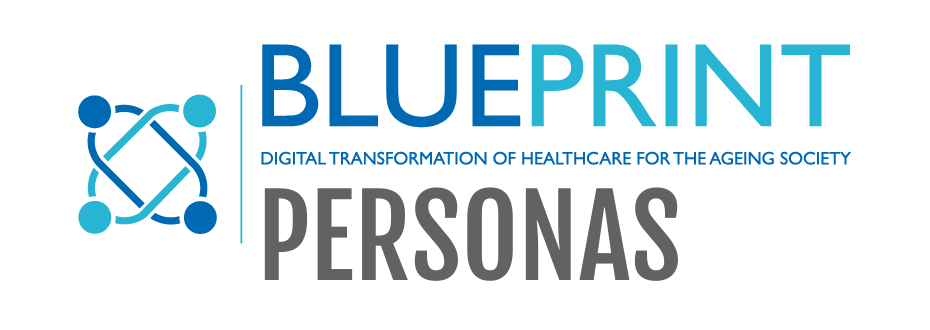Randolph

Name
Randolph
Age
64
Country
Afghanistan
Area
urban
Life course
retired person
Need
Generally well / good wellbeing
Connectivity
broadband, smart phone, tablet, digital TV
Randolph is in good health and has recently been diagnosed with glaucoma. He lives with his wife, Barbara, in a Victorian house in a large city in the UK. Randolph used to work for an IT company, but took early retirement some years ago. He occasionally does some freelance work for his ex-employer and values the flexibility that retirement offered him. Barbara has early onset dementia, her condition is now worsening, and its future developments will affect them both since Randolph is her informal caretaker. Randolph is very health-aware. He works out a couple of times a week for an hour or two at the gym near his home.
Internet usage
Mobile device skills
Affinity to new tech
Digital Health Literacy
Assistance (ICT use)
What's important to Randolph
– Staying in good physical shape. emotionally, intellectually.
– Being there for his wife.
– Being involved with the physically and financially local Caribbean community.
-Staying in touch online with his children who have moved back to the Caribbean.
– Being there for his wife.
– Being involved with the physically and financially local Caribbean community.
-Staying in touch online with his children who have moved back to the Caribbean.
Health concerns
– Randolph has no immediate health concerns. He has been diagnosed with glaucoma, a disease where pressure in the eye damages the optic nerve and is prevalent in the Carribbean community.
– He wears reading glasses and is worried about what would happen if his eyesight deteriorates.
– He wears reading glasses and is worried about what would happen if his eyesight deteriorates.
Daily living
– Pays close attention to Barbara’s daily agenda and activities.
– Does the shopping, but increasingly relies on at-home delivery services.
– The couple spends a lot of time together, but they still respect each other’s individual leisure and hobby activities.
– Does the shopping, but increasingly relies on at-home delivery services.
– The couple spends a lot of time together, but they still respect each other’s individual leisure and hobby activities.
Health tests
– National 5-yearly health check.
– Regular eye checks, including specifically related to glaucoma.
– Standard bowel cancer checks every 2 years.
– Standard aorta examination.
– Monitoring for prostate cancer in the years to come.
– Regular eye checks, including specifically related to glaucoma.
– Standard bowel cancer checks every 2 years.
– Standard aorta examination.
– Monitoring for prostate cancer in the years to come.
Events, issues & personal concerns
– Randolph misses his children and would have liked to have their company and support. Through their weekly video sessions he has told them of his condition and they are aware they have a higher risk of developing the disease.
– As Barbara’s condition deteriorates, Randolph’s caring responsibilities will increase in the future. This means he will have less time to do what’s important to him as an individual.
– As Barbara’s condition deteriorates, Randolph’s caring responsibilities will increase in the future. This means he will have less time to do what’s important to him as an individual.
Treatment: medications, therapies, etc.
– Randolph uses eye drops to reduce eye pressure, and takes no other prescribed medication.
– Randolph ensures that Barbara stays in the best possible health and that she takes her medication regularly, that she has an annual flu jab, etc.
– Randolph ensures that Barbara stays in the best possible health and that she takes her medication regularly, that she has an annual flu jab, etc.
Own resources & assets / support
– Randolph and Barbara live in a friendly and helpful local community and are regular members of a local church.
– Randolph is informed and alert. He is conscious that he needs to start planning ahead for himself and for Barbara.
– Randolph is informed and alert. He is conscious that he needs to start planning ahead for himself and for Barbara.
Care professional concerns
– Randolph has been able to manage Barbara’s care activities on his own, with occasional help from his support network (neighbours, church).
– Aware that Barbara‘s condition is not static, he keeps himself informed about developments in the dementia care field.
– Aware that Barbara‘s condition is not static, he keeps himself informed about developments in the dementia care field.
Needs
– Randolph would like to know more about “smarter” homes (e.g. apartment blocks) where he and Barbara could continue to live, and local or regional care homes, in case he and Barbara would at some point need to move away from the family home.
– A food provision service for Barbara and household help services would be helpful especially when unexpected events occur.
– He also feels the need to learn more about and how to cope better with Barbara’s condition. For example, he wants to know how to cope with her repeated questions, her getting more confused, and her misplacing her belongings, particularly if his eyesight deteriorates.
– He would like to get some information about powers of attorney, since he thinks that Barbara may need to sign one in the future. He wants to be well prepared for any legal developments that might come about.
– A food provision service for Barbara and household help services would be helpful especially when unexpected events occur.
– He also feels the need to learn more about and how to cope better with Barbara’s condition. For example, he wants to know how to cope with her repeated questions, her getting more confused, and her misplacing her belongings, particularly if his eyesight deteriorates.
– He would like to get some information about powers of attorney, since he thinks that Barbara may need to sign one in the future. He wants to be well prepared for any legal developments that might come about.
